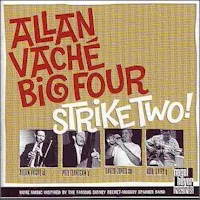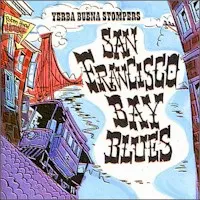Time: 53:05
File: MP3 @ 320K/s
Released: 2014
Styles: Pop/Rock, Soundtrack
Art: Front
01. Beautiful Orchestra - Overture (1:11)
02. Jessie Mueller - So Far Away (1:40)
03. Beautiful Ensemble - 1650 Broadway Medley (1:58)
04. Jessie Mueller - It Might As Well Rain Until September (1:44)
05. Jessie Mueller, Jake Epstein, E. Clayton Cornelious, James Harkness, Douglas Lyons & Alan Wiggins - Some Kind Of Wonderful (2:59)
06. Anika Larsen - Happy Days Are Here Again (1:03)
07. Jake Epstein & Jessie Mueller - Take Good Care Of My Baby (1:34)
08. Jessie Mueller - Will You Love Me Tomorrow (3:03)
09. Anika Larsen & Jarrod Spector - He's Sure The Boy I Love (1:15)
10. Ashley Blanchet, Alysha Deslorieux, Carly Hughes & Rashidra Scott - Will You Love Me Tomorrow (2:21)
11. E. Clayton Cornelious, James Harkness, Douglas Lyons & Alan Wiggins - Up On The Roof (2:09)
12. E. Clayton Cornelious, James Harkness, Douglas Lyons & Alan Wiggins - On Broadway (2:08)
13. Ashley Blanchet & Beautiful Ensemble - The Locomotion (2:08)
14. Jarrod Spector, Josh Davis, Kevin Duda & Beautiful Ensemble - You've Lost That Lovin' Feeling (3:15)
15. Rashidra Scott, Ashley Blanchet, Alysha Deslorieux, Carly Hughes & Jessie Mueller - One Fine Day (2:47)
16. Jessie Mueller & Beautiful Ensemble - Chains (1:41)
17. Anika Larsen & Jarrod Spector - Walking In The Rain (2:18)
18. Sara King, Jake Epstein & Beautiful Ensemble - Pleasant Valley Sunday (2:05)
19. Alysha Deslorieux, Douglas Lyons, E. Clayton Cornelious & Josh Davis - We Gotta Get Out Of This Place (1:57)
20. Jessie Mueller, Douglas Lyons, E. Clayton Cornelious & Josh Davis - Uptown (1:33)
21. Jessie Mueller, Douglas Lyons, E. Clayton Cornelious & Josh Davis - It's Too Late (2:43)
22. Jessie Mueller, Jarrod Spector, Anika Larsen & Jeb Brown - You've Got A Friend (2:34)
23. Jessie Mueller & Beautiful Company - (You Make Me Feel Like) A Natural Woman (2:08)
24. Jessie Mueller & Beautiful Company - Beautiful (2:39)
25. Jessie Mueller & Beautiful Company - I Feel The Earth Move (2:00)
Among the most successful and celebrated pop songwriters of the '60s and '70s, Carole King started her career pitching tunes to publishers and producers in New York's celebrated Brill Building; by 1971, she had become a successful performer who released what would become one of the biggest-selling albums of the decade, Tapestry. King's personal and professional lives reflected the shifting mores of the '60s and the changing place of women in American culture, and her music and the stories behind her songs come to the stage in Beautiful: The Carole King Musical. Dealing with King's remarkable career in music, her often tumultuous relationship with husband and collaborator Gerry Goffin, and their friendly rivalry with fellow tunesmiths Barry Mann and Cynthia Weil, Beautiful features a score assembled from classic songs of the era, including "One Fine Day," "It Might as Well Rain Until September," "Will You Love Me Tomorrow," "It's Too Late," "Chains," "I Feel the Earth Move," and many more. ~Review by Mark Deming
Beautiful: The Carole King Musical





















